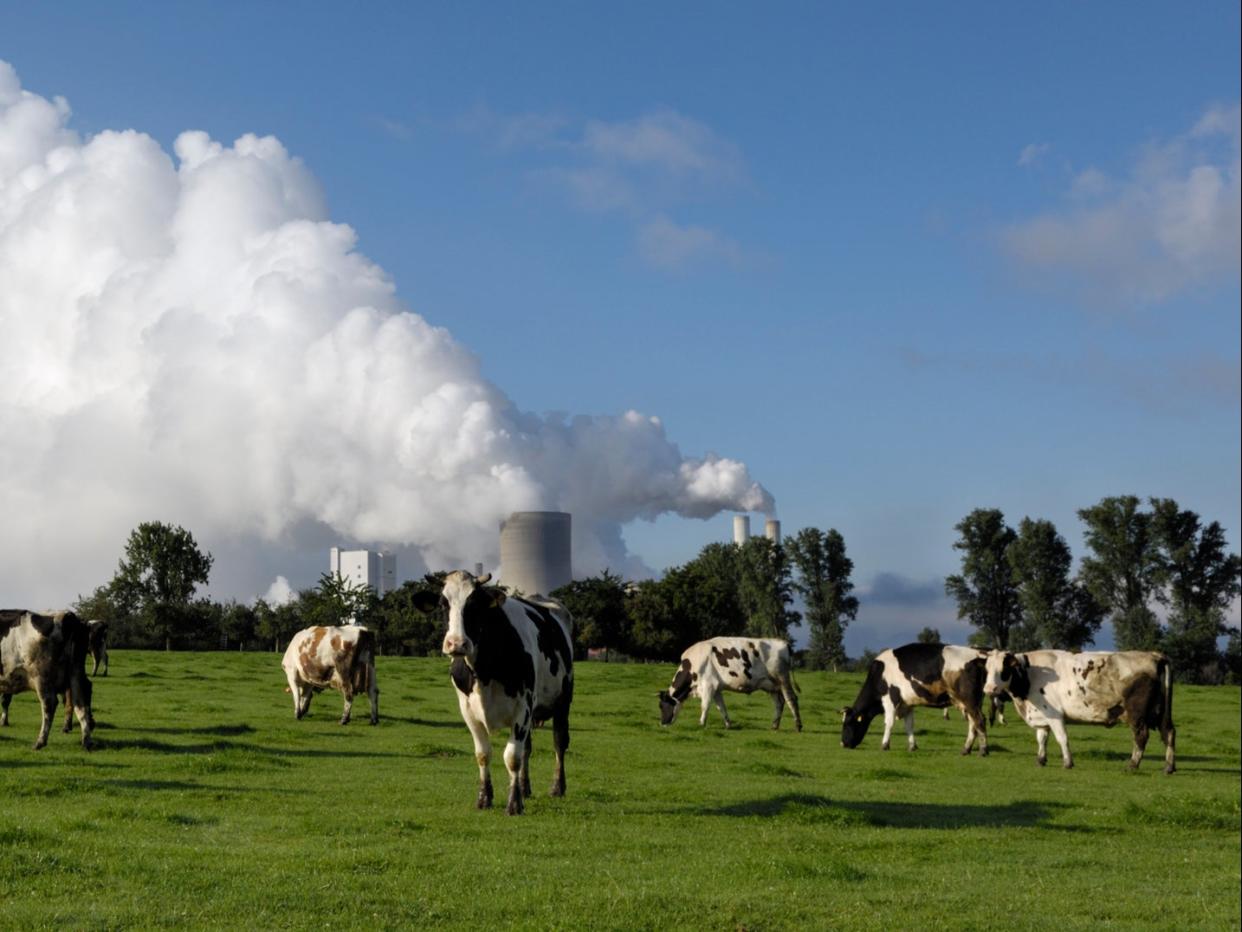‘Cows are the new coal’: Investors urge governments to reduce agricultural emissions

Global economies must take rapid action to reduce the level of greenhouse gases emitted by agriculture, or risk missing climate targets, a world-leading group of investors has warned.
The FAIRR network, which is supported by investors managing over $38 trillion (£27 trillion) in assets, has called for specific agriculture emissions targets to form part of the G20 nations’ climate plans at the UN’s Cop26 climate summit in Glasgow in November, saying current progress will not allow countries to hit the goals of the Paris climate agreement.
The investment group includes high profile investors such as Legal and General and Canada Post Pension, and their campaign, titled “Where’s the beef?”, has been backed by former secretary general of the UN, Ban Ki-moon.
Despite agriculture currently accounting for a third of all global emissions, none of the G20 have included specific targets for agricultural emissions in their current plans, known as “nationally determined contributions” or NDCs, the campaign notes.
However, this is not the case with other high-emitting sectors, as half of G20 countries’ NDCs have specific targets for the energy sector and a fifth have included targets for transport emissions reductions.
Jeremy Coller, chair of FAIRR and chief executive of Coller Capital, said: “Cows are the new coal. The emissions from agriculture and related land use are on a level with the greenhouse gases emitted by the EU, US and Japan combined.
But he told The Independent investment groups priorities remain in generating capital.
He said: “Don’t make the mistake of thinking us investors are getting all moral. We have a fiduciary responsibility to maximise returns.
“But investors are asking, what’s the point of having a pension in 2050, if the world is too hot to retire into?
“[They] increasingly realise that in order to generate sustainable returns they need to build in the costs of increasing carbon taxes and regulation and the potential for class actions on climate.
“In order to mitigate that risk they are taking a leadership position on climate, and are pushing governments to do likewise.”
He said research by his investment group suggests the top 40 meat companies could face a loss of up to $11bn from the increasing cost of carbon.
“That shows the stranded assets risk facing livestock and why cows are rapidly becoming the new coal,” he said.
“If the Cop26 process can transparently set out each country’s plans to address agriculture’s climate footprint, it would boost the confidence of investors to mobilise capital towards more sustainable food and farming.”
He added: “Reducing emissions without a roadmap for how to get there is not only ineffective but highly damaging for investors and companies keen to ensure a fair and equitable transition to a net-zero economy.”
Mr Ban said: “Governments are making progress with ambitious pledges to reduce emissions, but if we are to meet the goals of the Paris agreement, countries must also say how they will tackle the high level of emissions from the agricultural sector as part of their national climate commitments.
“I support investors and the ‘Where’s the Beef?’ campaign as governments submit updated climate plans ahead of Cop26.
“Transparent emission reduction targets will help investors and wider stakeholders measure progress towards net zero and chart the transition to more sustainable agriculture.”
Read More
People are drowning as they try to cool off in Pacific Northwest heatwave
The Big Question: Why are some of the planet’s coldest areas experiencing heatwaves?

